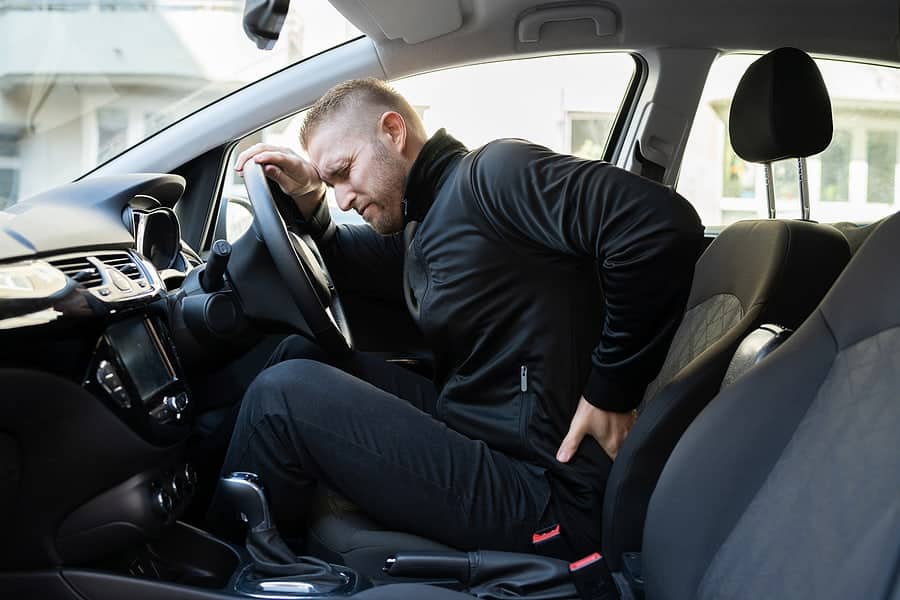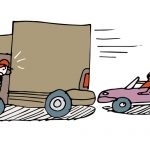
Many of us have been victims of road rage. Traffic jams, aggressive driving and bad handling can give you that feeling like your blood is about to boil. When you are more stressed behind the wheel, this is likely to increase the risk of you having an accident. Stay cool and in the best frame of mind with our tips for remaining calm on the road:
Table of contents:
Preparation
Be ready for the road to cut down on the effects of the potential pressure that could be coming your way…
Try the alternatives
Do you even have to drive? Ask the boss if you can work from home and ditch the commute. Alternatively mix it up by taking the bus, the train or even cycling or jogging. Avoid the rush of bank holiday weekends by using public transport.
Plan your route
New destinations can be tricky, so give yourself a little more time to avoid getting lost. Equally if you’re already feeling stressed by the journey, then give yourself more time to relax. Checking traffic reports will allow you to avoid tailbacks caused by diversions and roadworks.
Turn off the phone
Using your phone behind the wheel is illegal, however alerts, buzzing and ringing can still be a distraction. Turn off the phone and put it into silent or airplane mode so you can focus on the road. If you have to be aware of situations at work, then pull over every couple of hours to check emails and give updates.
Ensure the car is working well
Check the fuel gauge before you get out on the road, ensure that your oil and water levels are good and check that the tyres are properly inflated. And you have been sticking to your service schedule, haven’t you?
Staying calm behind the wheel
Prevention is always better than cure. Keep the red mist at bay by observing these sane and sensible driving practices:
Leave a gap
Feeling a little strung out behind the wheel? Drop back and create more space between yourself and the car in front. It’s always good to give more space in bad conditions. Reduce stress levels by waiting for the right time to move whilst giving way at busy junctions and allow other cars to merge on the motorways.
Anticipate
Always think as far ahead as possible, giving you the head-space to cope with sudden actions from other drivers. Making decisions under pressure is likely to lead to stress.
Avoid confrontation
Some drivers can become more reckless when they’re stressed. If someone is driving erratically or aggressively, let them pass without losing your cool. Don’t react and keep calm to avoid getting into a road rage confrontation.

Give other drivers the benefit of the doubt
Whilst it might be very tempting to gesticulate and use the horn when someone cuts you up, remember that everyone makes mistakes, yourself included. Be the bigger person and forgive the driver error, rather than becoming wound up behind the wheel.
When you wind up getting stressed
Try these techniques to bring back the feeling of calm, centred energy and bring back your focus from frustration and distraction:
Breathing
Deep breathing has been scientifically proven to be a powerful relaxation technique for calming the mind and body. Remember when you were in PE lessons way back in school and got a stitch? Use a similar breathing technique; in through the nose and out through the mouth for around 5-10 repetitions to feel instantly soothed.
Music and the radio
Music has the power to unconsciously change your mood. Loud, repetitive beats can increase stress hormones and that’s before we even start talking about the maddening news reports full of outrage. Keep an ambient playlist on standby for when you need it most.
Adjust your seating

Your body can become hunched over the wheel on longer journeys increasing bodily tensions. Check your posture regularly and if you feel tense and stiff then adjust your body’s position in the seat. Sit back in your seat, straighten your back and let your shoulders relax.
Take a break
No-one is immune from the effects of fatigue and tiredness. A lack of energy can lead to irritability, so don’t be too hard on yourself and give yourself a break from the wheel every couple of hours. If you feel your stress levels rising, then take some time away from the driver’s seat. It’s not worth pushing it and having a crash.
And finally…
Think about the bigger picture. Where will stress on the road eventually lead you? It won’t be somewhere good. Accidents and bad driving could add points to your license, eventually resulting in a fine or a ban, which could see you losing your job, your license or even your freedom. Consider whether a few minutes of venting and getting worked up is worth the long term costs. We bet that it probably isn’t…













.png)